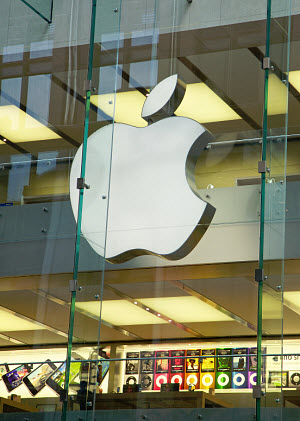Mobile commerce has become a powerful force in the US
The mobile commerce market is growing quickly throughout the world. The advent of mobile technology has had a profound impact on the commerce sector, changing the way that people shop for and purchase products. Mobile commerce is still a relatively new concept, but consumers have shown a great deal of favor for being able to purchase products with their smartphones, both online and off. According to BI Intelligence, the mobile commerce market is expected to swell throughout the United States in the coming years.
In-store mobile payments expected to reach $37 billion this year
BI Intelligence predicts that in-store mobile payments will reach $37 billion this year. This is lower than the organization’s previous forecast, largely due to the late launch of new mobile payment services, such as Samsung Pay and CurrentC. Despite the downward revision of this forecast, more consumers are beginning to participate in mobile commerce, especially in physical stores. Retailers are making it possible for people to purchase products with their mobile devices while in stores, rather than forcing these people to purchase products online.
More consumers are participating in mobile commerce
 An estimated 8% of mobile consumers in the U.S. made a mobile payment at least once in 2014. BI Intelligence predicts that this will swell to 65% of mobile consumers by 2019. Many people are beginning to feel comfortable with the concept of mobile payments, and this comfort is allowing them to be more active in this sector. With new mobile payment services launching, a growing number of consumers are likely to enter into the sector.
An estimated 8% of mobile consumers in the U.S. made a mobile payment at least once in 2014. BI Intelligence predicts that this will swell to 65% of mobile consumers by 2019. Many people are beginning to feel comfortable with the concept of mobile payments, and this comfort is allowing them to be more active in this sector. With new mobile payment services launching, a growing number of consumers are likely to enter into the sector.
Apple is leading the mobile payments space
Apple is having the most dramatic impact on the mobile payments space. The company launched its Apple Pay service last year, which has become extremely popular among consumers and retailers alike. Other companies have plans to launch their own payment services later this year, but will have to fight to catch up with Apple, as it has established a strong lead in the sector.
The iPhone giant has announced that it has now purchased the German AR software maker.
Apple has now announced by way of a corporate filing, that it has acquired a German company that specializes in augmented reality imagery and software, called Metaio. This could place a great deal of weight behind the use of AR technology, which has seen a bumpy road along its path to adoption.
So far, there have been only very specific uses of AR tech that have made it onto the market.
By the time that this article was written, the terms of the purchase had not yet been disclosed. The augmented reality company has been in the spotlight for many investors for some time now, but this purchase by Apple has changed the entire nature of the company’s existence. Previously, Metaio had welcomed investors such as Westcott LLC, which is the investing side of entrepreneur Carl Wescott (the 1-800-Flowers floral delivery company founder), as well as Atlantic Bridge, a growth equity tech fund based in Silicon Valley.
According to the document that was filed with a Munich court, the augmented reality company’s sole shareholder is now Apple.
 The AR technology software from Metaio is typically implemented in automotive, industrial, and retail markets. It gives sellers the opportunity to create virtual user manuals or even showrooms for their products. This makes it easier for consumers to be able to imagine a product in a real situation, or to be able to visualize the instructions for complex equipment maintenance or repair purposes.
The AR technology software from Metaio is typically implemented in automotive, industrial, and retail markets. It gives sellers the opportunity to create virtual user manuals or even showrooms for their products. This makes it easier for consumers to be able to imagine a product in a real situation, or to be able to visualize the instructions for complex equipment maintenance or repair purposes.
This can be helpful because it is accessible through mobile devices that are commonly owned and carried – such as smartphones and tablets – and it creates an overlay of graphics and/or text on top of images and objects that are there within the real-life environment. This is not the same tech as virtual reality, which creates an entirely simulated environment.
According to Juniper Research analyst, Steffen Sorrell, Apple would be able to work Metaio into its custom computer chip line of products. In this way, the tech market research firm analyst said that Apple would be able to use the augmented reality intellectual property to create a genuine differentiation for its products in an increasingly competitive mobile device marketplace.
 An estimated 8% of mobile consumers in the U.S. made a mobile payment at least once in 2014. BI Intelligence predicts that this will swell to 65% of mobile consumers by 2019. Many people are beginning to feel comfortable with the concept of mobile payments, and this comfort is allowing them to be more active in this sector. With new mobile payment services launching, a growing number of consumers are likely to enter into the sector.
An estimated 8% of mobile consumers in the U.S. made a mobile payment at least once in 2014. BI Intelligence predicts that this will swell to 65% of mobile consumers by 2019. Many people are beginning to feel comfortable with the concept of mobile payments, and this comfort is allowing them to be more active in this sector. With new mobile payment services launching, a growing number of consumers are likely to enter into the sector.
 The AR technology software from Metaio is typically implemented in automotive, industrial, and retail markets. It gives sellers the opportunity to create virtual user manuals or even showrooms for their products. This makes it easier for consumers to be able to imagine a product in a real situation, or to be able to visualize the instructions for complex equipment maintenance or repair purposes.
The AR technology software from Metaio is typically implemented in automotive, industrial, and retail markets. It gives sellers the opportunity to create virtual user manuals or even showrooms for their products. This makes it easier for consumers to be able to imagine a product in a real situation, or to be able to visualize the instructions for complex equipment maintenance or repair purposes.